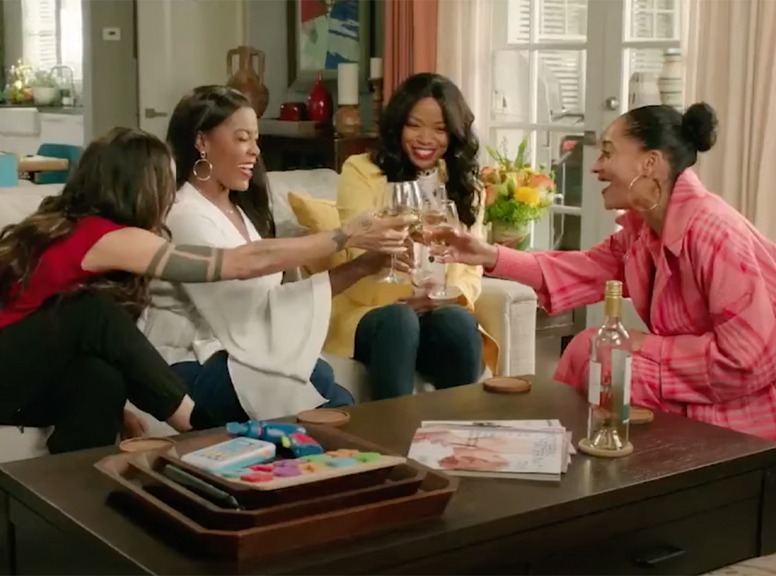Feminism
In "Feminisnt," after learning that Diane (Marsai Martin) and Dre's mother Ruby (Jenifer Lewis) didn't believe in feminism, Bow brings Diane to her feminism group to teach her what it actually is.
With the help of her friends, aka former Girlfriends co-stars, Golden Brooks, Jill Marie Jones and Persia White, Bow discusses the complexities of intersectional feminism, and specifically white feminism blind spots.
Postpartum Depression
After giving birth to her son, Bow was having difficulties connecting with him. Though she was in denial and was embarrassed, she came to the realization that she had postpartum depression.
The episode made it clear that it is nothing to be ashamed of, and that it's a chemical imbalance rather than a weakness.
Police Brutality
In the season two episode titled "Hope," the Johnson parents teach their children about police brutality while watching a fake indictment case. The pair have differing views on how to address the topic with Jack and Diane.
"They are not just children, they are Black children and they need to know the world they are living in," Dre says in the episode.
"I just want to give them a little faith in the world," Bow adds. "Help them hold on to their innocence and be kids a little while longer."
The Presidential Election
In an election special, the Johnson family teaches Black-ish viewers about the history of voting and voting suppression.
At the end of the episode, Junior—who is now legally able to vote—feels defeated. But Dre reassures him that he has to vote.
"The machine was built to keep us out, but the only time that things changed in this country was when people did whatever it takes to make their voices count," Dre says to Junior.
"You have to vote, son," he continues later in the episode. "I know it may sound hopeless but that's what they want you to believe to keep you from participating. But the ballot is the best weapon we have."
Colorism
After Diane gets her school photos back from picture day, Bow and Dre realize that the lighting the school used was not conductive to photographing dark skin—resulting in Diane looking like a shadow in the pictures.
This incident incited an important conversation regarding colorism, and the stereotypes that come along with being light-skin vs. dark-skin.

